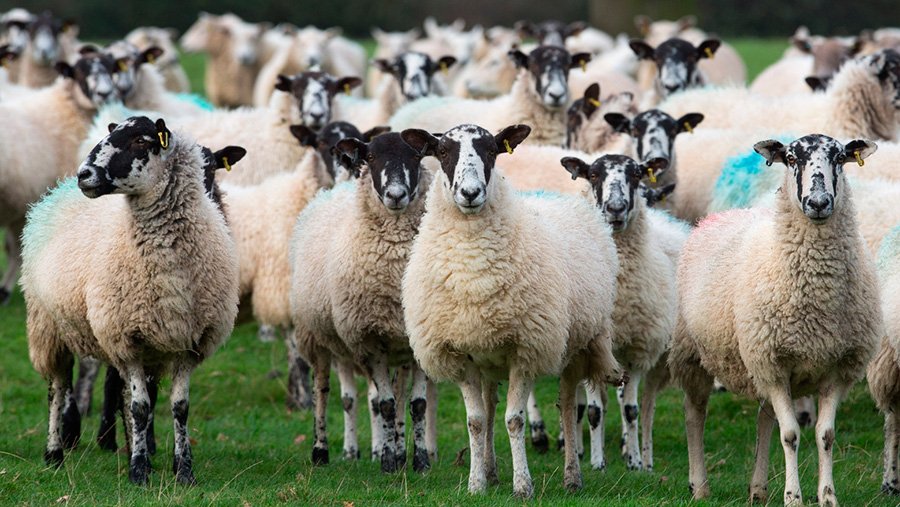Farmers debate viability of sheep industry without subsidies
 © Tim Scrivener
© Tim Scrivener Sheep farming must be profitable to survive with a shrinking subsidy pot in a post-Brexit era, last week’s NSA Sheep Event heard.
Farm payments must target active sheep producers by rewarding progressive management decisions and cease being “pensions schemes” that are tied to the land.
This was the consensus of a heated debate at the Three Counties Showground last week (27 July), which gave lamb producers the chance to air views on the follies of past agricultural policies and what form a new UK policy should take.
The discussion followed a well-received address from farm minister and Brexiteer George Eustice. He urged farmer involvement in producing a coherent agricultural policy based on “first principles”.
See also: Scottish sheep upland payments lower than expected
First principles
This sentiment was welcomed by National Sheep Association chief executive Phil Stocker, who told Farmers Weekly this should mean hitting three clear industry goals.
- Get to a position where sheep enterprises are viable
- No reliance on a Basic Payment Scheme
- Proper reward payments for the environmental and social benefits sheep farming brings to the countryside
Mr Stocker said this could be achieved by using Pillar two payments more broadly to reward farmers for improving their farm, flock and business, rather than simply paying farms for profit foregone or costs incurred.
See also: Red meat sector unties to forge new farm policy
He added: “We would like to see recognition for the public benefits sheep farming brings to rural communities and landscapes while incentivising farmers to improve flock health. We know this will drive productivity and efficiency.
“Policy makers should consider paying farmers for carbon sequestration, water and flood management, supporting rural schools and businesses and rewarding farmers for having open farm events.
“Funding can be used to encourage strong vet/farmer relationships, promote the practice of blood testing and disease surveillance schemes and to get the industry doing more with preventative flock health plans.”
What farmers want to see
John Yeomans, sheep and beef farmer, Powys
“Ideally, I would rather have a good price week to week and do without subsidy. Policy and agri-environment schemes can now be simplified, but farmers need to be there at the beginning and talking as part of the process.
“However, our industry is very heavily regulated and this is unlikely to change. We will remain at least the second-most-regulated industry in the world because of our exports to Europe – 95% of Welsh lamb leaves Wales.”
James Gray, Hampshire farmer and Tenant Farmers Association vice-chairman
“This needs to be the end for ludicrously onerous penalties. I once escaped a £40,000 fine for putting sheep on land two days earlier than I should have.
“Support needs to be targeted and go to the active farmer. If we have £3bn to invest in agriculture we could split it equally three ways. The first third could support hill farming in SDAs [severely disadvantaged areas], the second used for capital grants and the third on new market research and promotion of the product.
“We need help for young people who want to get into farming. We also need an outgoers scheme to help people after a lifetime in farming.”
